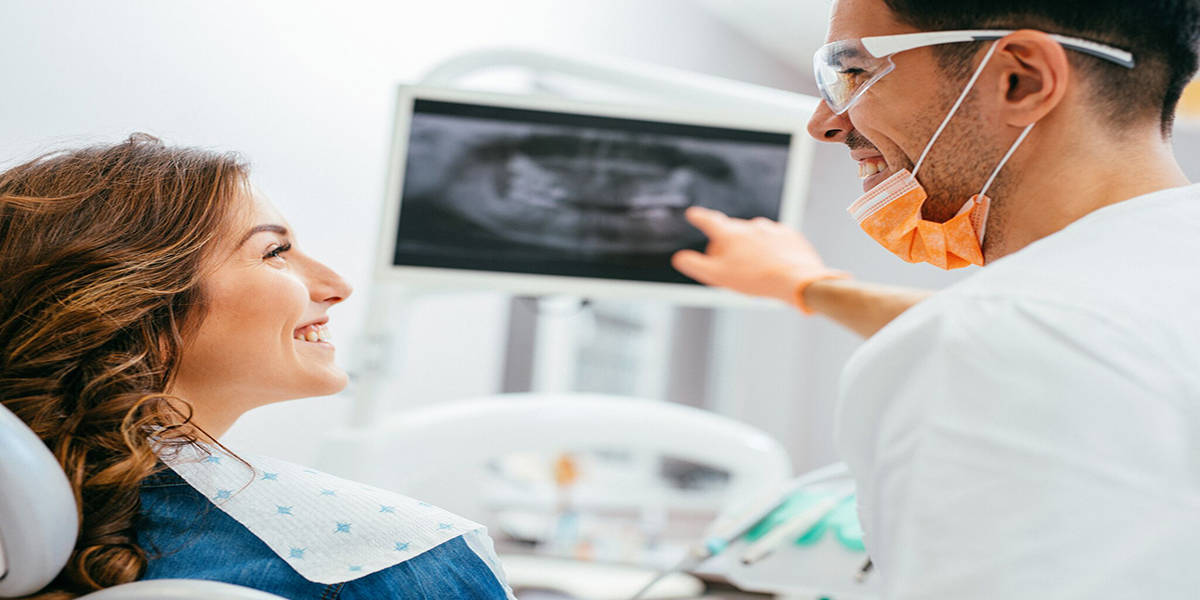The Importance of Dental X-rays

Why dental x-rays?
- Decay – decay between teeth is often not visible
- Recurrent decay – new decay under old fillings
- Bone loss—an x-ray will tell us the location, degree and severity of the bone loss
- Infections—look for infections around roots and inside bone
- Teeth—detects defects in teeth, presence and positions of teeth, impacted or extra teeth;
- Pathology – detects cysts, tumors or other abnormalities
What are the different types of dental x-rays?
Dr.Singh:
There are several types of dental X-rays, which record slightly different views of your mouth. X-ray can be film based (old technology) or sensor based Digital X-rays. Digital X-rays use as much as 80% less radiation compared to film-based X-Rays. Needless to say, we only use the most sophisticated Digital X-Ray systems from Sirona.
There are intraoral X-rays, such as
- Bitewings: These X-Rays are most commonly used to check for cavities between teeth.
- Peri-Apical X-Rays: used to evaluate areas around roots of teeth.
There are also Extra-Oral X-rays (where no film is placed into mouth). These can be two dimensional (2D)(Panoramic) or three dimensional (3D) CT scans. Less that 1% of dental offices in Markham have a 3DCT scanner today and we were one of the first two offices to have this technology 4 yrs ago.
- Panoramic: For this type of X-ray, the machine rotates around the head. It allows us to have a good overview of the teeth, bone, jaw joints, and sinuses
- 3DCT Scans – brand new technology that is truly revolutionary and is greatly influencing modern treatment techniques and processes. The main beneficiary is ,of course, our patient.
How often should I be getting check-up dental x-rays done?
Dr.Singh:
The frequency of getting”check-up” X-rays of your teeth often depends on your medical and dental history and current condition. If you are in general good oral health, the recommended frequency is once every 6 months, and for Complete Oral Exams (which include a full-mouth series and panoramic x-ray), once every 3 years.
X-rays are very important in the diagnosis of emergency problems and therefore additional non-check-up X-Rays are taken when necessary.
Are there any negative affects to getting ‘x’ number of x-rays?
Dr.Singh:
While dental X-rays do involve radiation, the exposed levels are so low they’re considered safe for children and adults. If your dentist uses digital X-rays instead of developing them on film, your risks from radiation exposure are even lower. Here at Vitality Dentistry, we do in fact use digital x-rays exclusively. Like brushing and flossing, regular dental X-rays are an integral part of maintaining your overall oral health. Having a good checkup can be a relief, but this doesn’t mean you shouldn’t keep getting X-rays. Be sure to commit to your appointments and see your dentist sooner if you experience any pain or other changes in your mouth.
What are the actual radiation levels or effects of dental x-rays in comparison to other types of necessary medical imaging?
Dr.Singh:
Dental X-rays are very targeted. Unlike conventional X-rays on other parts of the body (which usually take a picture of a large area), dental X-rays are very targeted to a small part of the body. In fact, it’s typically shot via a cone (like a laser) so that it can be very focused. This ultra-precise targeting (plus your protective lead apron) ensures that just a small part of the body receives the minimal dose of radiation. The exposure is very small compared to other types of X-rays. A millisievert (mSv) scale is used to measure doses, you could expect 0.038 from Bitewing X-rays, and 0.150 from a full mouth X-ray. In comparison to other types of X-rays:
Lower Gastrointestinal Tract – 4.060
Chest x-ray – .80
Avg. natural background radiation in the US (per year) – 3.00
With digital x-rays, Dental x-rays emit even less radiation. In some cases, up to 80 percent lower. You receive more radiation by just “living” than you do by going to your dentist.
Will my insurance company cover the cost of my dental x-rays?
Dr.Singh:
In most cases yes, the insurance company does cover the cost of all necessary x-rays and imaging required at your dental appointment, however, in some cases based on your individual insurance plan, not all necessary x-rays and imaging are covered. An insurance company might limit the number of X-Rays that they will pay for, but this has nothing to do with them being necessary and everything to do with them limiting the amounts that they have to pay their subscribers.

About The Author
Dr. Raj Singh founded Dentistry at Vitality Health with the purpose of helping people change their lives through the transformational power of modern dentistry. He understood that the condition of the teeth, and the surrounding gums, muscles, and jaws, could have a dramatic effect on a person's appearance, as well as their health. He takes a multifaceted approach to dental health, by utilizing a diverse range of health disciplines in order to help people achieve optimal health and physical appearance.
Look and feel great again with computer-guided dental implants.
Call (289) 274-0588, we'd love to talk to you!
BOOK AN APPOINTMENT
Fill out the form below and we will be
in touch to arrange an appointment

